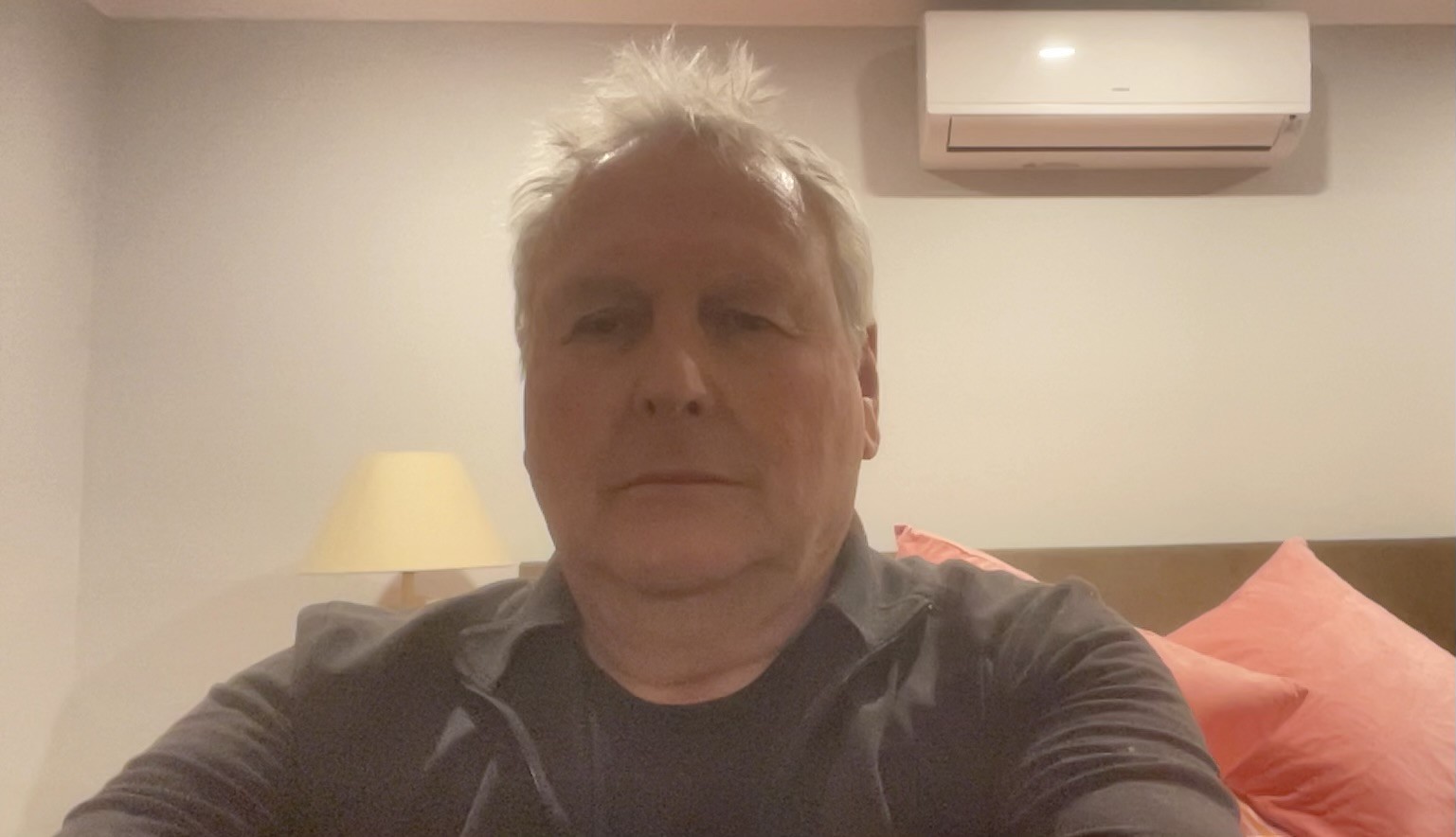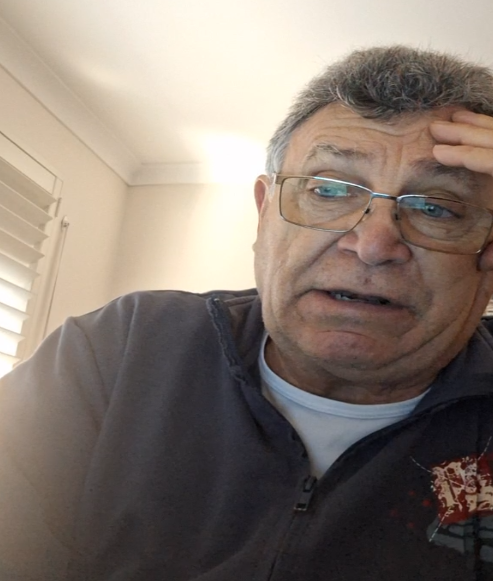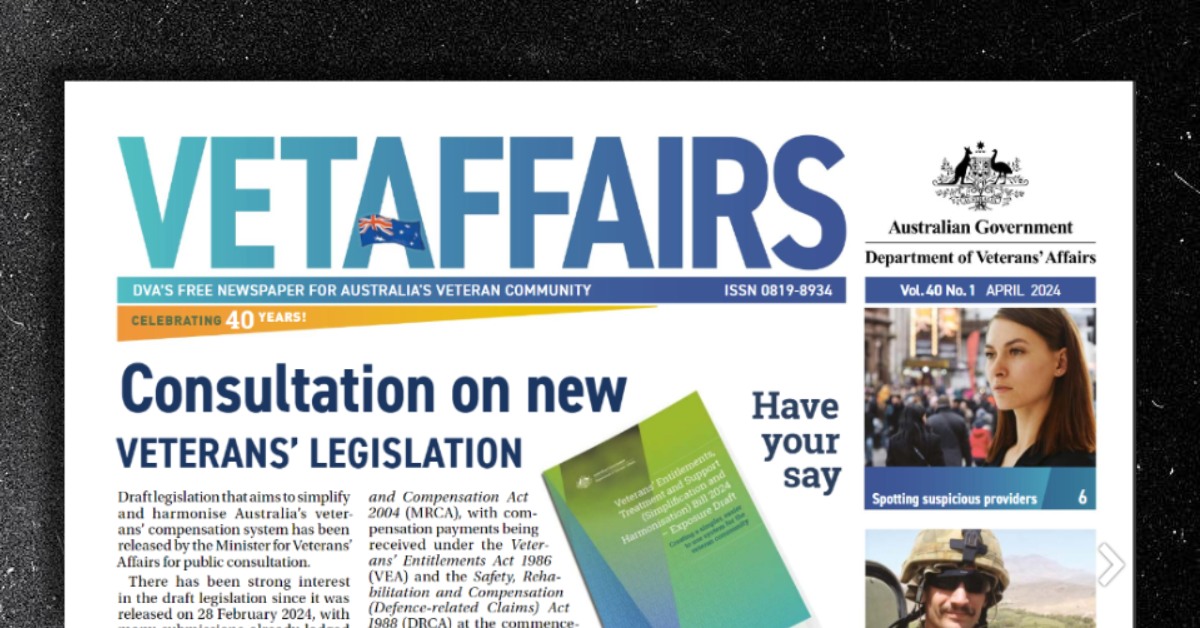Nasho cancer survivors have broken their silence on an “unconscionable” situation preventing them from getting reimbursed for hospital bills through the White Card.
They allege the veterans’ affairs department failed to tell them they were eligible for free cancer treatment before the offer expired, while the federal government denies wrongdoing.
- In short: Nasho cancer survivors claim they were wrongly disallowed their access to free cancer treatment.
- In one case, a man suffering from a terminal diagnosis was left $20,000 out of pocket.
- The men claim they were not told about the entitlement until after it expired.
- What’s next? The Australian Government denies wrongdoing, and the men have exhausted all avenues of potential reimbursement.
The Whitlam government granted the benefit to Nashos who continued in the ADF after conscription was suspended on 7 December 1972, and to those who completed a full-time enlistment afterwards.
It was one of several incentives offered to “promote retention in the Australian Defence Force after the abolition of National Service and with the withdrawal from Vietnam,” the Department of Veterans’ Affairs said.
The legislation dictates that cancer claims must be lodged within three months of a cost being incurred. It does not allow back-payments beyond that timeframe.
Garry Davis, 73, was one of the eligible candidates who missed out. He was diagnosed with terminal prostate cancer around 2018 and paid $20,000 out of pocket for his treatment.
“My cancer was very aggressive, the numbers were high, so we moved quickly and I had it removed,” he said.
In 2022, he learned through Nasho Fair Go that he could have been covered for the treatment under the White Card, but it was too late.
“Well I was pissed off, obviously, it’s a lot of money,” he said.
“By the time I found out about this White Card, which the department hadn’t informed anyone about, I was done and dusted with my operations.”
Mr Davis said the outlay affected his retirement plans.
“I’m on the pension, so I’m not overloaded with dough, so spending money like that was difficult to find,” he said.
“It’s kind of okay because I’ve been a struggler all my life financially, but could you imagine if you had an extra 30-grand in your bank now?
“You’d probably live a bit differently; I’ve got grandkids who I’d like to give money to, and it’s the holidays that get me.

Nasho Garry Davis was $20,000 out of pocket from his treatment.
“I’m just trying to let it go because I know there’s no way of getting it back.”
His final option would be to apply for an Act of Grace Payment, but the DVA warned Nasho Fair Go that it was a “potential, if unlikely, avenue”.
The DVA officer said in an email to the association: “From my investigations, there are no other viable options for Mr Davis to seek reimbursement.
“While I know this isn’t the answer you were hoping to hear, I have explored all options available.”
Situation “unconscionable”
Nasho Fair Go became aware of the free cancer treatment in 2022 when it started lobbying the Australian Government for more support.
The association’s President Geoff Parkes said the current situation with the cancer treatment is “unconscionable”.
“This issue is raising considerable ire, anger and fury among our members,” he said.
“My mate’s retirement plans have been ruined by this.
“He now suffers depression as a result, on top of his terminal prostate cancer.”

Erino Mosconi said he was not told about the free cancer treatment until recently.
Another Nasho, Erino Mosconi, was left $9,000 out of pocket from his cancer treatment.
The 73-year-old was diagnosed 12 years ago.
“I had a golf ball sized lump in my neck, and as it turned out it had cancer in half of my thyroid, only a minor one, but I had half of my thyroid removed,” he said.
The treatment worked and Mr Moscini has been healthy ever since.
But he said he was never informed about his eligibility for free treatment.
“No, I didn’t even know it was slightly possible,” he said.
“Twelve years after the fact it’s irrelevant, I paid for it, I can’t get that back.
“Sometimes when I’m not sleeping it weighs me down.”
He only found out about it a year ago through Nasho Fair Go.
Mr Mosconi said he and his fellow Nashos were promised comprehensive entitlements if they remained after conscription.
“The RSM and Lieutenant were all on parade schooling us about how good things would be if we stayed on,” he said.
“They told us we’d qualify for all of the benefits of a returned soldier.”
He added there was no mention of what those benefits would entail and that the government never fulfilled its full commitment.
“None of that happened, I got a war service loan of $15,000, which I still had to get a second mortgage for,” he said.
Hundreds of Nashos in the dark
There are conflicting accounts on who was told about the incentives or what they were.
Some men report they were informed of some benefits, while others claim nothing was communicated to them.
According to the DVA, that era of Nashos was offered a war-service home loan and, later, medical treatment for tuberculosis and cancer.
“The first we found out about it was when we were looking into the White Card a few years ago,” Mr Parkes said.
“Fifty plus years ago when we were discharged, we were given no information as to our rights, and the vast majority of us have had no reason to pursue them since.
“Those men, like myself, would happily swear an affidavit that we were never advised of this potential benefit when we were discharged.
“The whole discharge process was chaos in those days.”
The brutal reality of life after the army was emphasised in the Shining A Light report that was published in June after the Royal Commission into Defence and Veteran Suicide.
It found transitioning into civilian life is one of the most fraught times for veterans in terms of suicide risk.
Transitioning without support makes the process harder.
Nashos struggled greatly during this time as they were not given anywhere near the same level of support available today.
Some became suicidal as a result.
Mr Parkes said they should be granted more leniency in recognition of this and the Nashos who did not know their rights and who continue to be haunted by conscription.
“We think it’s incumbent on the DVA to go back and try and rectify that situation for a group of men who got out of the army with no idea about the entitlements,” he said.
Approximately 750 of Nasho Fair Go’s members qualify for the free cancer treatment.
In a survey, the association found that only 16 per cent of them, or 120 members, were aware of it before joining.
“Many of our members have spent thousands of dollars on cancer treatment that DVA should have paid for, but they were unaware of the potential benefit,” Mr Parkes said.
One major barrier stopping Nashos from accessing information and advice about their rights is their inability to use computers.
Nasho Fair Go found 26 per cent of its members are computer illiterate.
“They are being asked to do something that is out of range for a lot of our people,” Mr Parkes said.
Nashos who were unaware about their entitlements are often asked why they did not seek help from veteran advocates after their service.
But Mr Moscini said it was not that simple because they were neglected when they left the army.
“I never spoke to anyone; why would I speak to anyone if I didn’t know I was entitled?” he said.
“They took your clothes and bag off you when you discharged and that was the last contact I had from them [the DVA] until I was at least 59, when I tried to find out what benefits I was entitled to.”
Mr Davis experienced something similar.
“When we left the army, as we walked out the door, it was all over – there was no contact after that,” he said.
“We’re going back to 1972; all the emails and social media came a long time after, so how have they been advising?”
DVA denies wrongdoing

When asked whether Nashos, such as Mr Mosconi and Mr Davis, should be granted back payments considering the circumstances, the DVA stated it cannot comment on individual cases.
The department also refutes allegations the government has not done enough to inform Nashos of their rights.
“The Department of Veterans’ Affairs has on many occasions distributed information in mainstream and veterans’ media about the entitlements available to veterans, including National Servicemen, in communications dating back to the 1970s,” the DVA said.
“Information about entitlements is also regularly provided to Ex-Service Organisations, including the National Servicemen’s Association of Australia and Nasho Fair Go, for distribution to their members.
“Every veteran registered with DVA is posted or emailed a copy of “VetAffairs” newspaper three times a year.”
The DVA said Nashos also received information before and after their service.
“During the 1964-72 National Service Scheme, information about the availability of Repatriation entitlements was distributed in pamphlets issued to National Servicemen by the Department of Labour and National Service.
“The extension of benefits including cancer coverage was promulgated in mainstream media at the time this occurred.”
The department is currently working on “improving its communications around the cancer treatment available to eligible veterans through the Non-Liability Health Care (NLHC) program.”
“A factsheet is in development outlining the support National Servicemen can access from DVA, including cancer treatment through NLHC, that will be provided to Nasho Fair Go for distribution to their members,” the DVA said.

